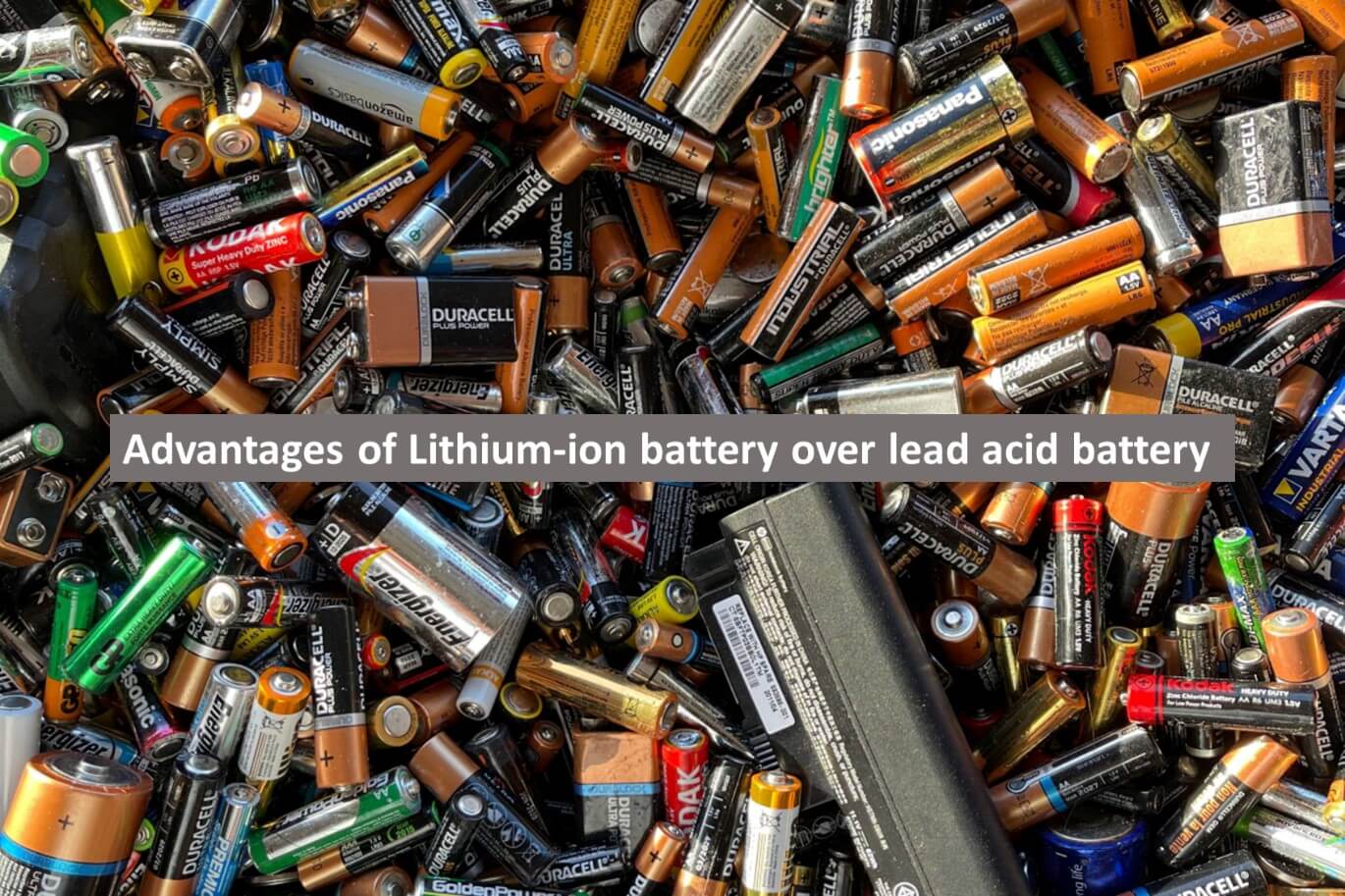Advantages of Lithium-ion Battery Over Lead Acid Battery
A lithium-ion battery is a rechargeable battery that makes use of the charges on lithium ions switching between two electrodes namely the anode and the cathode.
Lead-acid, although being a conventional technology, has lower cost than the new solution but is rather costly in the long run and needs maintenance frequently.
Lithium is a class of batteries with high offers relative to lifespan and efficiency as compared with conventional batteries.
Lead-acid batteries bear a reduced battery life of 200- 500 charge/ discharge cycles with a life expectancy of 3-5 years with routine usage; deep cycle batteries can achieve up to 7 years of life based on correct maintenance.
Lithium ion battery has more cycles, between 500 – 2000 and a longer life expectancy of 5 to 10 years, and some newer models that are more superior have more than 3000 cycles.
It is low cost, high heat capacity, and are general maintenance free and, hence, more resistant to a wider range of temperatures for a variety of applications as compared to the conventional ones despite of the high initial expenditure.
While using Lithium-ion for solar energy storage, the following are distinguishing factors than the lead-acid battery.
It is more efficient, the density of energy per mass is higher and the deep discharge rate is higher hence optimally utilizing the capacity of the stored solar energy.
Furthermore, lithium-ion ones are less susceptible to maintenance as they do not need frequent top-ups of electrolyte levels; the terminal cannot be cleaned, and those batteries function optimally at a higher and lower degree of heat than the other types.
Though lithium-ion batteries cost more than the former ones, attributes such as long cycles of effectiveness, low maintenance, and high efficiency of lithium-ion batteries make them cheaper and viable for the solar energy system as against the others in the long run.
Release of the acids can cause skin and other body surface burns as well as material damage through corrosion.
The charges releases hydrogen gas which is flammable and the equipment can cause an explosion if charged in an ill-ventilated area.
Lithium-ion batteries have less safety concerns relative to the other types of batteries because this type of battery is monitored by BMS that constantly monitors the temperature, voltage and current of the battery to prevent over-charging and cause of Thermal runaway.
Also, they are sealed units and that makes them safe because such chemical leakages cannot come into contact with them.
Furthermore, no gases are released during the normal working conditions of lithium-ion batteries and therefore the safety of lithium ion batteries is higher than other types of batteries in various applications.
This gives lithium-ion batteries better safety and reliability than the earlier generations of batteries when managed and maintained properly.
While understanding advantages of Lithium-ion battery over Lead acid battery , one should must know that Lead acid batteries usually have less cost of acquisition in comparison to the price of acquisition of lithium-ion battery; such batteries also have the least cost of installation in comparison to lithium ion battery.
Lithium-ion batteries have a few multiples of the lifespan of nicad batteries and hence over their life cycle the lithium-ion batteries are relatively cheaper.
Regarding this fact, it optional to state that lithium-ion batteries have their environmental advantages over traditional batteries .
They do not come with lead content and produce more power, thus cutting down on the dependence and fracturing of the earth’s crust for energy. Also, they do not need to be replaced frequently due to their long durability and use efficient power thus leading to more conservation of power.
The potential environmental concern for lead acid batteries lies in the components of the battery itself.
Lead is an extremely toxic heavy metal and the improper usage in manufacture of these batteries or disposal can lead to lead toxicity in human and animals.
Lead acid battery voltage drops steadily as they discharged. However, frequent deep discharges (below 50%) significantly shorten their lifespan (300-500) cycles.
Lead acid battery are cheaper upfront, typically ranging from €1,500 to €3,000. Lithium-ion battery are more expensive, they offer significant advantages.
Expect a starting price €3,410 and upward, depending on capacity.
Lithium -ion battery is clear winner when it comes to weight. They can be up to 70% lighter than lead acid batteries with the same energy storage capacity.

In conclusion, the advantages of Lithium-ion battery over Lead acid battery are substantial.
Lithium-ion batteries offer higher energy density, longer lifespan, and faster charging capabilities. They are also more lightweight and have a lower self-discharge rate.
Additionally, lithium-ion batteries are environmentally friendly, as they contain fewer toxic materials and can be recycled more efficiently.
These benefits make lithium-ion batteries the preferred choice for a wide range of applications, from portable electronics to electric vehicles, contributing to cleaner energy solutions and sustainable technological advancements.
